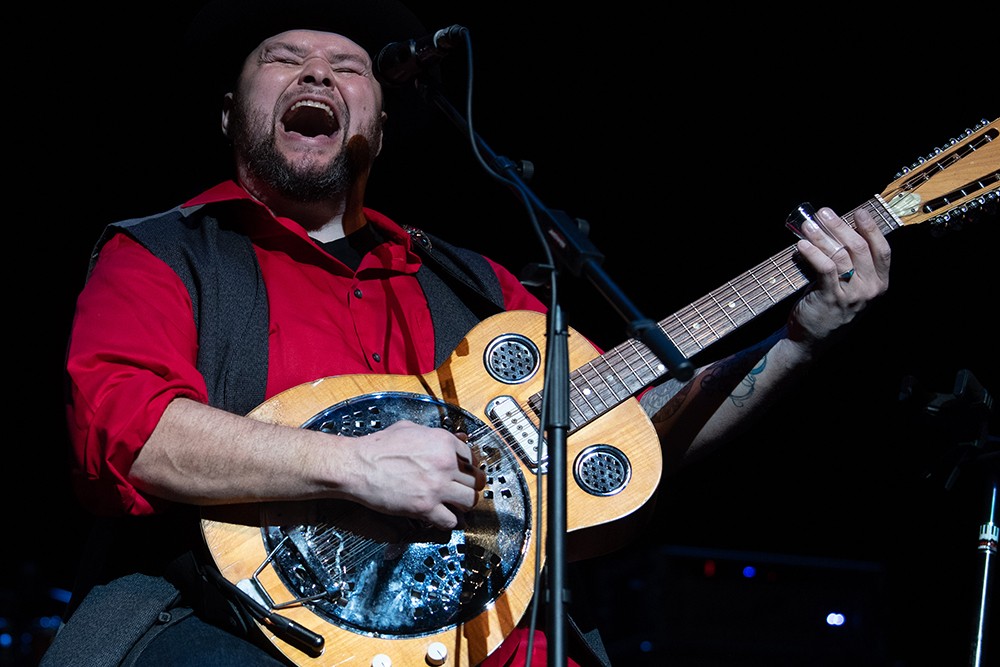 Tom Davis
Tom Davis
Hector Anchondo, double-winner at this year’s International Blues Challenge
It’s been a heady time for Memphis and the blues lately. The city and the music are nearly synonymous, not only due to our storied past but for the ongoing love we collectively show the art form. Naturally, Memphis is home to The Blues Foundation, and aside from every spring’s Blues Music Awards (scheduled for May 7th), the nonprofit’s shining (and most music-filled) moment is the International Blues Challenge (IBC).
The importance — and global reach — of the IBC couldn’t have been underscored more with the Memphis-based Southern Avenue still riding high from their Grammy nomination. Although Gary Clark, Jr., ultimately won the title of Best Contemporary Blues Album, the nomination alone was yet another notch in the belt of a band whose story has gone hand in hand with the IBC.
Guitarist Ori Naftaly first came here from his native Israel for the IBC in 2013, and getting to the semi-finals that year was enough to convince him to stay. Two years later, he founded Southern Avenue, and by 2016 they’d made it to the IBC finals. It wasn’t long before they were signed to the newly revived Stax Records and were the toast of the town. The Grammy nomination for their second album, Keep On, only furthers that trajectory.
This past Saturday’s final competition and award cermony served as a capstone to IBC events sprinkled through the preceding week. At the Keeping the Blues Alive Awards ceremony, Peter Astrup, Rob Bowman, Janice Johnston, and Kathleen Lawton were recognized, as were the Cali Blues and Folk Festival in Colombia, the Jimiway Blues Festival in Poland, Hal & Mal’s Restaurant, the Jus’ Blues Music Foundation and the Kentuckiana Blues Society.
Other events included a screening of the classic documentary, Deep Blues: A Musical Pilgrimage to the Crossroads, a keynote panel on “Blues Women: Creators, Conductors, and Catalysts,” and the workshop, “Leading Your Own Career with Bobby Rush.” Additionally, the Blues Hall of Fame opened its new Women of the Blues exhibit along with hosting a Janiva Magness book signing and a panel discussion addressing “Music Across Borders.”
 Tom Davis
Tom Davis
HOROJO Trio
The cumulative event, of course, was the International Blues Challenge finals, which took place at the Orpheum Theatre. The HOROJO Trio, representing the Ottawa Blues Society, left Memphis with a first-place finish in the Band Division. JW Jones (the “Jo” in HOROJO) took home the Gibson Guitar Award for Best Band Guitarist. Hector Anchondo, from the Blues Society of Omaha, triumphed in the Solo/Duo Division as well as earning the Memphis Cigar Box Award as the Best Solo/Duo Guitarist.
Felix Slim picked up the Lee Oskar Harmonica Award for the Best Harmonica Player, while finishing second to Anchondo in the Solo/Duo category. Anchondo and Slim are both former finalists who now have won an IBC award.  Rick Nation
Rick Nation
Felix Slim
This year’s winners also underscore the international aspect of the IBC. Slim, after becoming one of Spain’s leading blues men, spent several years living in Greece being influenced by its music before moving to New York City. And placing second to the Canada-based HOROJO Trio was the Jose Ramirez Band, which is led by Ramirez who was a major blues star in his native Costa Rica before relocating to America.
Meanwhile, Anchondo’s Latino background makes for a cross-cultural blues sound. While Latino contributions to the blues reach back to what Jelly Roll Morton called the “Spanish tinge” in pre-war New Orleans jazz, or old records like 1949’s “Muy Sabroso Blues” by Lalo Guerrero, Anchondo’s double-win was a strong affirmation of a cultural side of the blues that many sleep on. And, of course, it was a strong showing from Nebraska’s thriving blues scene.
 Great Plains James Photography
Great Plains James Photography